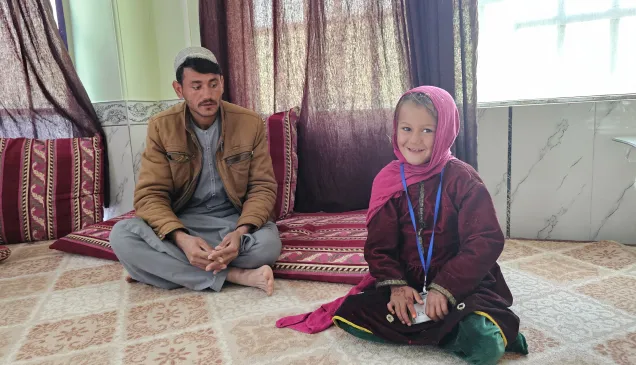Cambodia: ICRC celebrates 30 years of physical rehabilitation programme in Cambodia
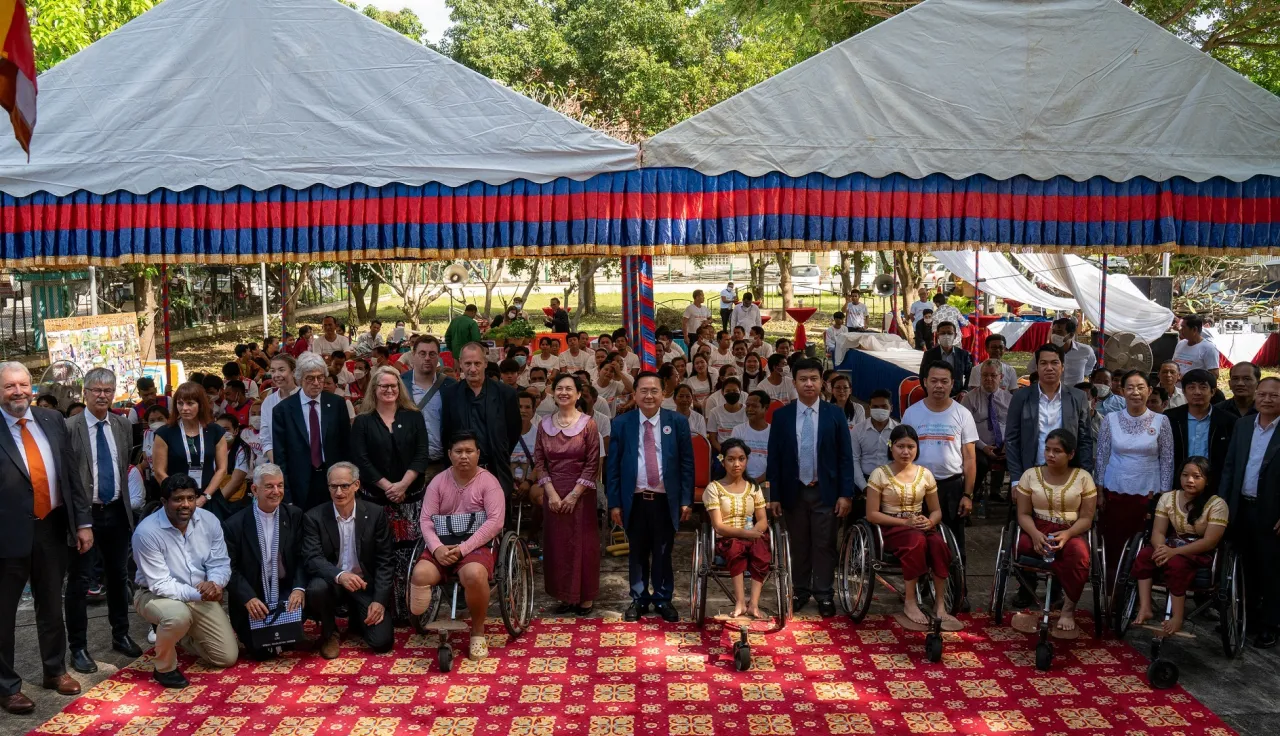
Battambang – On 22 November, the International Committee of the Red Cross (ICRC) celebrated the 30th anniversary of its physical rehabilitation programme in Cambodia, having provided support to more than 166,000 people with disabilities in the country.
To mark the occasion, the ICRC organised an all-day event inside the physical rehabilitation centre in Battambang province, the country's first and largest centres with integrated prostheses, orthoseses and wheelchair production.
The centre was honoured by the presence of Her Royal Highness Princess Sisowath Kanthireth a strong supporter of the wheelchair basketball teams. Other guests included a representative from the Ministry of Social Affairs, Veterans, and Youth Rehabilitation Mr Vong Sauth, and governor of Battambang province Mr Sok Lou. Other participants included the ICRC's head of Regional Delegation in Bangkok, physical rehabilitation experts, representatives of Mine-ex Foundation – the programme's main donor, as well as the managers of the country's 10 other physical rehabilitation centres, the Battambang centre's staff and service users.
Traditional dancers and musicians, many of whom were people with disabilities, performed for the guests. The event also featured an exhibition of 30 photos taken by different ICRC staff over the past three decades capturing the centre's activities from its establishment in 1992 until today. Many photos highlighted how people with disabilities have been able to overcome their difficulties with the assistance of the centre through prosthetic services and different projects to promote social inclusivity such as income-generating programmes, vocational training, and sport.
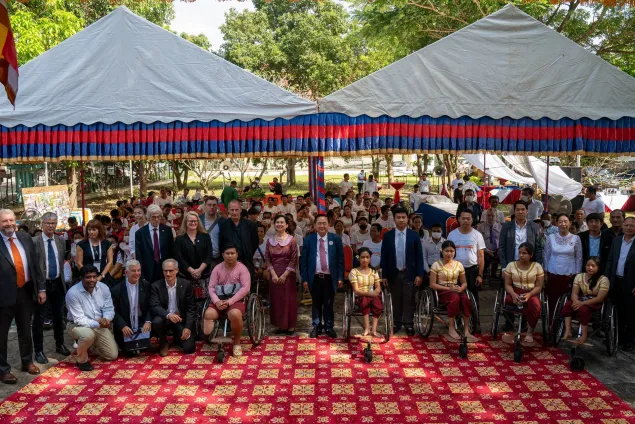
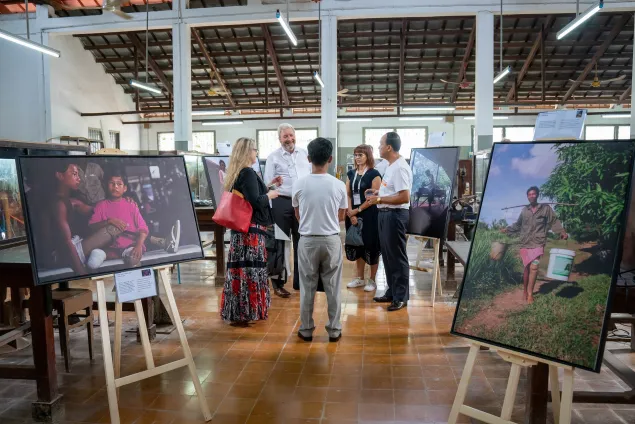
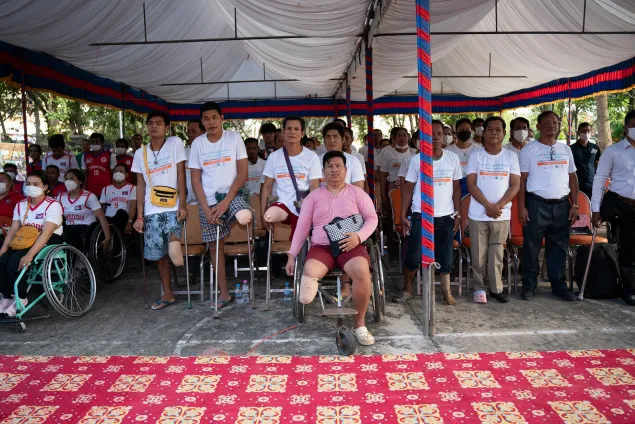
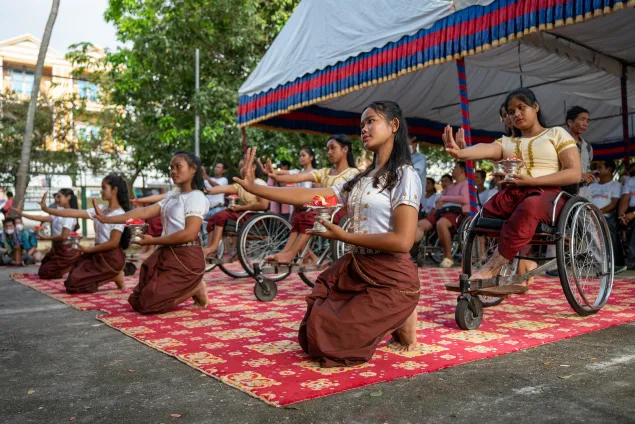
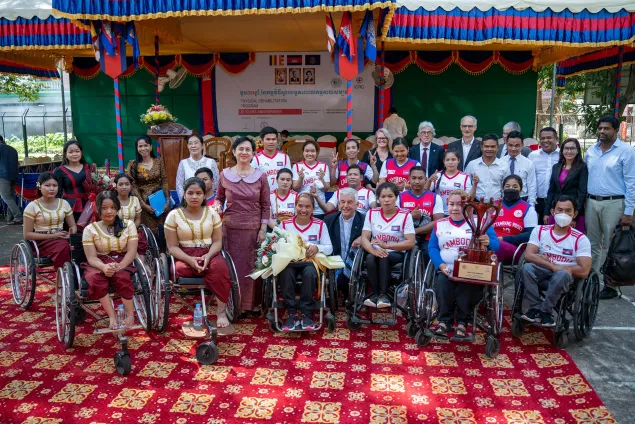
The ICRC has supported the Cambodian government by building and running the country's first physical rehabilitation centre in Battambang province 30 years ago. It also built an orthopaedic components factory and provided technical skills training and professional development to the sector's staff for years.
Now, the centre has become a regional centre which provides free services to persons with disabilities in five provinces: Battambang; Pursat; Pailin; Banteay Meanchey and Oddar Meanchey – some of the most heavily weapon-contaminated areas in the world. In 2005, the ICRC also began supporting another centre in Kampong Speu province. Nowadays, both centres are owned and operated by Ministry of Social Affairs, Veterans and Youth Rehabilitation, with the ICRC continuing to provide technical and financial support.
Providing people with physical rehabilitation services is a long-term commitment. Some services may be required throughout the lifespan of a person. However, I believe that, through our work with our partners and local authorities as well as with the support of our donors, we can support persons with disabilities to achieve a better quality of life and return to their communities with dignity.
- Mr Juan Pedro Schaerer, Head of ICRC's Regional Delegation in Bangkok during the event's opening.
ICRC has had a permanent presence in Cambodia since 1991 to rehabilitate communities affected by different post-conflict issues. It has been working closely with Cambodia's Ministry of Social Affairs, Veterans and Youth Rehabilitation in support of Phnom Penh orthopaedic component factory, and Battambang and Kampong Speu rehabilitation centres. Close to 11,000 disabled people are benefiting from the services provided at both centres every year. Around 50% of them are victims of mines and other explosive remnants of war.

